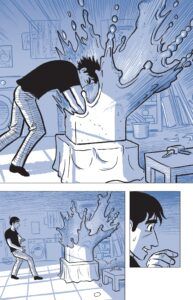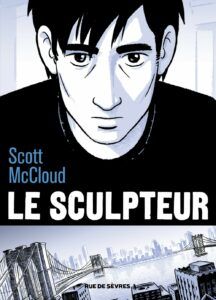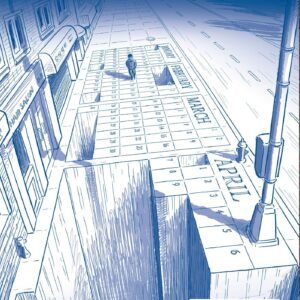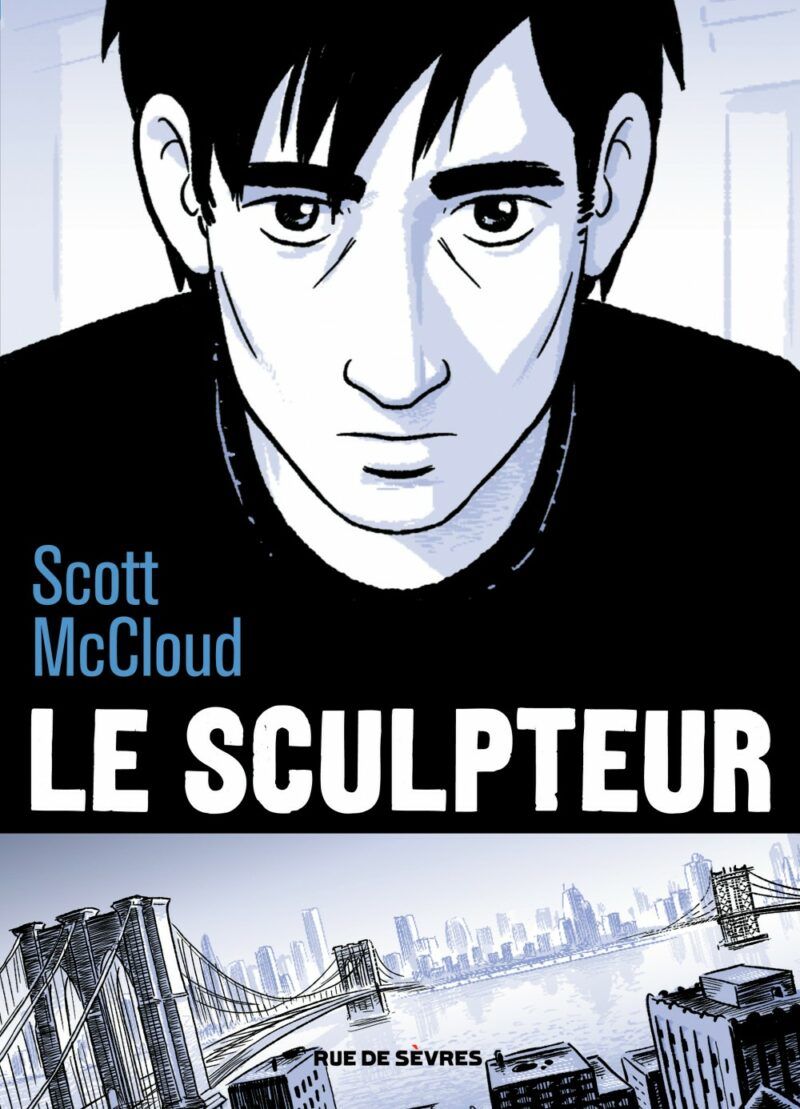Review of the comic book The Sculptor, by Scott McCloud
A modern, relentless and poetic interpretation of the Faust myth. This is how this work by the American Scott McCloud, already author of The invisible art and its sequels.
If, like me, you only know the story of Dr. Faustus in outline, it will be interesting to do some research on the subject. At least, this will allow you to see that The Sculptor, far from being a modern copy, it is different in many aspects.
Synopsis
“In need of inspiration, David Smith, a tortured young sculptor, is offered a deal that will allow him to fulfill his childhood dream: to sculpt whatever he wants with his bare hands.
But nothing lasts forever and everything has a price. In exchange for his life, he will have two hundred days to create his Work. And he will pay even more dearly: When the countdown begins, he meets true love… This will shake all his certainties.
Review
Let’s talk first about the format: With its 480 pages, ”The Sculptor” is a very imposing book. When you know that some 60-page comics are sold for less, it is already pleasant to have so much material to read.
But above all, this format allows the author to tell his story as he wishes, without being handicapped by a limited number of pages. We can feel that he takes pleasure in the layout, which is particularly successful. American comics have always been less traditional than European ones in this respect, but some passages here are strikingly inventive. The drawings are simple and effective, but slightly uneven on some points (the design of some characters in particular).
Nevertheless, although entirely in shades of blue, black, and white, they are never monotonous.

But what about the story itself ? One thing is sure, it only takes a few minutes to fully enter it. Scott McCloud draws the reader in with a disconcerting ease in his first pages, which are as melancholic as they are intriguing.
We quickly get to know our hero, David Smith, a disillusioned and uninspired artist, confronted with the hypocrisy and misunderstanding of the New York art world. His name, very common, is revealing of his distress: His homonyms are extremely numerous, counting in particular another very famous sculptor. In his mind, this name condemns him to remain a man among thousands of others, to never stand out, to remain the other David Smith.
In the midst of all this, he is tempted to make a pact to carve any material with his bare hands as he pleases. It is in particular there that The Sculptor differs from the Faust myth: Instead of universal knowledge, the hero’s wish is the ultimate mastery of his art, raising issues that are quite different from the original story: What makes a work successful? ? How can an artist remain in posterity ? Is it really possible to achieve eternal recognition ? These questions, among others, are the ones that will inhabit our hero from the moment he accepts this pact.
But this gift is not free, and David will only have 200 days to make the most of it. As if that wasn’t enough, he will soon find love in the person of Meg, a young emotionally unstable actress. By bringing freshness into his life, she will challenge all of David’s beliefs about the meaning and purpose of his existence.

McCloud’s talent here is to make his characters particularly endearing, making us feel empathy for them very quickly. The tone is often sad and poetic, but regularly more joyful and funny. The author has a real comic talent, adding to his story touches of humor that are often unexpected but always very well felt.
Scott McCloud lives up to his reputation as a master of storytelling. The structure of the book, although relatively simple and chronological, succeeds in not falling into monotony, thanks in particular to numerous and perfectly controlled timelapses, intervening between two stops on determining passages in the evolution of the hero. Some of these stops are repeated many times without becoming tiresome.
Those or David meeting Uncle Harry in particular, are always fascinating: intriguing, funny and chilling at the same time. A few flashbacks also intervene, allowing us to discover David’s past in parallel with the main events, and accentuating the thoughts and doubts that are going through him at this very moment. And how not to mention the last pages, completely crazy ?

Finally, the author likes to use many symbols punctuating the story and supporting certain emotions. Thus, banal sentences like You can do it or Everything will be fine become symbols of the hero’s perseverance or hope. Death is sometimes represented by a skeletal hand (classic), and sometimes by a Red Sox cap (more surprising) ?).
Brief, The Sculptor is a book that asks, and makes one ask, many fascinating questions, while remaining entertaining and easy to read.
Quite different from the American comics that we usually know, it is an excellent discovery ! Find this book by clicking here.


